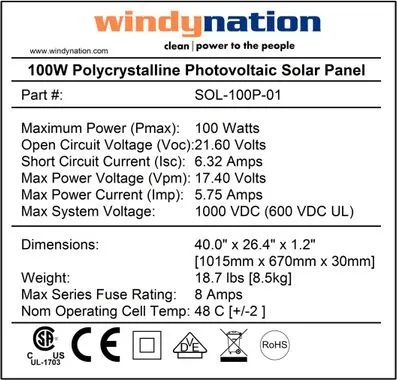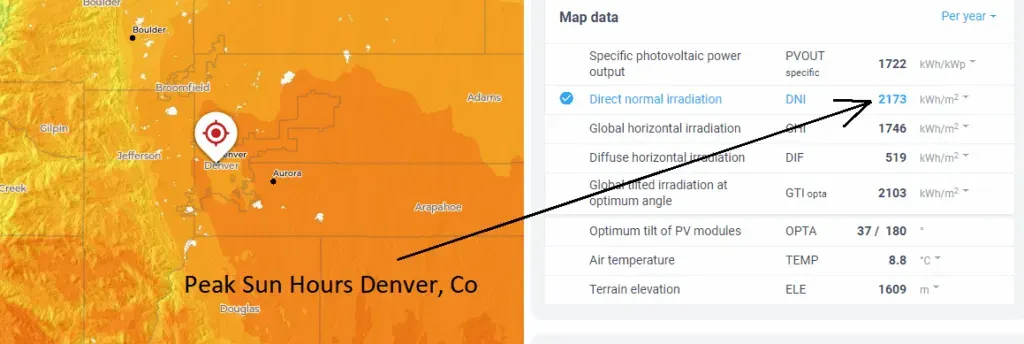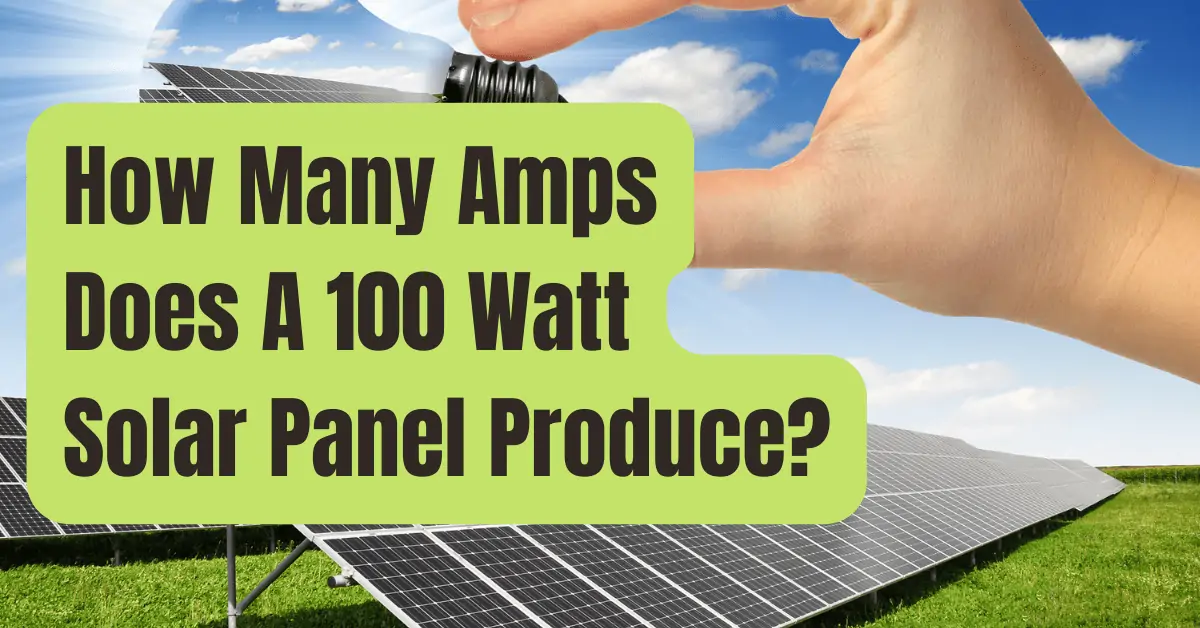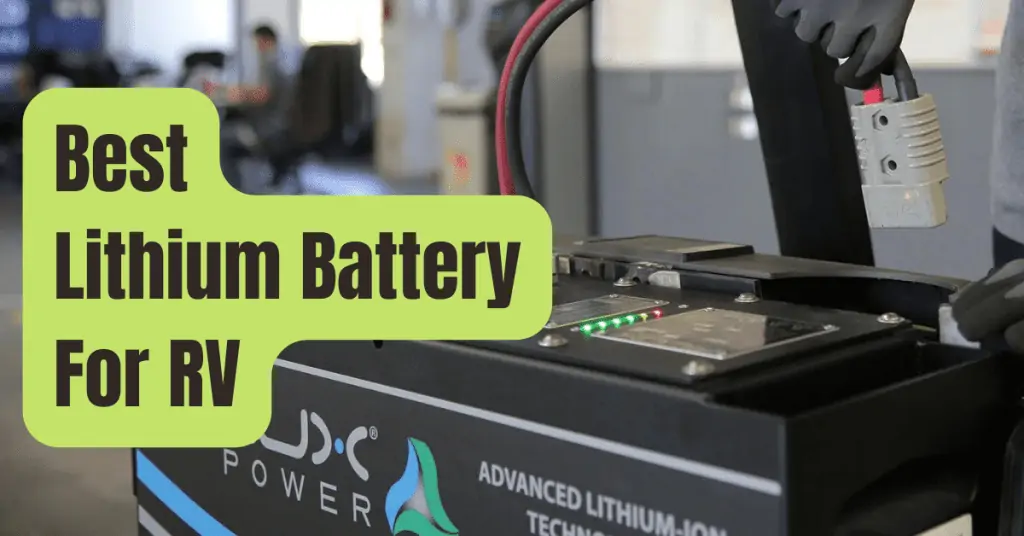How much electricity is generated by a 100 watt solar panel?
A 100 watt solar panel can typically provide 400 watt-hours (Wh) of electricity per day at an irradiation of 4 peak sun hours.
To keep the output at the panel’s Maximum Power Voltage of 17.5 volts and Maximum Power Current of 5.75 amps, MPPT charge controllers should be employed.
Technology related to solar panels has long attracted me.
I find it very fascinating that by transforming solar energy into electricity, you can essentially obtain something for free.
As an electrical engineer, I have a good understanding of the terms used by specialists to explain energy, but I soon discovered that it’s simple to get confused when it comes to solar panel power.
We have watts and watt-hours in addition to amps and voltage on the one hand.
In this article, I’ll explain how everything works together and show you how much electricity a 100 watt solar panel is capable of producing.
What Units Does Solar Energy Use?
Solar energy is essentially watt-based DC (direct current) electrical power.
When discussing the output of solar panels, we often use the following 4 fundamental measuring units:
- Watts of power
Watts in a basic DC circuit equal volts times amps.
- Watt-hours of energy
We refer to the energy produced by a solar panel in Wh, which is equal to watts times hours.
- Measured in amps
When a voltage is applied across a load or resistance, a current flows.
Amperes are used to measure current.
- Ohms of resistance
Resistance (R) exists in wires and other components of all circuits.
When R is low for a given voltage, the current is high, and vice versa.
How Much Energy Does A 100 Watt Solar Panel Produce Exactly?

The Rating System For Solar Panels
The basic rating is given in watts, but to fully comprehend what that implies, you must read the specifications.
Not usually will a 100 watt solar panel provide 100 watts of output electricity.
In reality, it won’t the most of the time! Where does this manufacturer’s rating originate from, then? What can a hundred watts power?
All solar panels are rated in accordance with the STC, or Standard Test Conditions, worldwide standard.
The following are the most crucial requirements for the stated rating:
- A 1000 watts/m2 irradiance (sunshine power)
- Temperature of 77 degrees Fahrenheit (25 degrees C)
Even under the finest circumstances, you can anticipate to lower that grade by roughly 15%.
These are perfect laboratory settings.
In addition, there are a number of typical solar losses that may further cut production.
How Is Solar Energy Production Measured?

The Maximum Power Point produces the most solar panel watts.
What Voltage Is Generated By A 100 Watt Solar Panel?
The average open circuit voltage of a solar panel is 22 volts, however it may vary significantly.
The 100 watt panel’s maximum output occurs when Vpm is 17.4 volts and Imp is 5.75 amps.
When the load resistance matches the characteristic resistance (internal resistance) of the panel, this is known as the Maximum Power Point (MPP).
How Many Amps Does A 100 Watt Solar Panel Use?
The solar panel is “short-circuited” when the positive and negative leads are linked together, and Maximum Power Current (Imp) is about 90% of Short Circuit Current (Isc).
The Isc and Imp values for the 100 watt solar panel label in the picture above are 6.32 amps and 5.75 amps, respectively.
A short-circuit in an electrical circuit is often a very undesirable thing.
It happens often in the case of solar panels to measure current output.
How is it even doable? Why does a shorted-out solar panel not burn out?
Because of this, there is no voltage.
Since power is equal to volts times amps, there is no power when volts is zero; any number multiplied by zero equals zero.
Voltages And Currents For 8 Common 100 Watt Solar Panels Are Included In The Table.
| 100 WattSolar Panel Manufacturer | Open Circuit Voltage (Ocv) | Short Circuit Current (Isc) | Maximum Power Voltage (Mpv) | Maximum Power Current (Mpi) |
| Renogy 100W | 22.5 volts | 5.75 amps | 18.5 volts | 5.29 amps |
| HQST 100W | 21.3 | 5.83 | 18 | 5.58 |
| RICH SOLAR 100 W | 22.6 | 5.86 | 18.5 | 5.41 |
| WindyNation 100 W | 21.6 | 6.32 | 17.4 | 5.75 |
| Newpowa 100 W | 20.23 | 6.25 | 17 | 5.89 |
| ECO-WORTHY 100 W | 21.6 | 6.13 | 17.4 | 5.78 |
| Texas Solar 100 W | 21.4 | 6.30 | 17.7 | 5.7 |
| ROCKPALS SP003 100W (Folding) | 21.5 | 5.9 | 18 | 5.4 |
How Are Power And Energy Different From One Another?
Watts are used to measure the production of solar energy in real time.
I mean by the phrase “instantaneous” “measured at any instant in time.”
When you examine watts over a certain period of time, the energy provided is referred to as watt-hours.
It’s just how many watts a solar panel produces per hour, day, and year!
Professional solar installers often size solar panels and household solar installations according to general rules of thumb.
One such estimate is the 400 watt-hours of electricity that a 100 watt solar panel will generate each day.
Where Did The General Norm For Solar Size Originate From?
Every place on Earth has a certain irradiance, or the quantity of solar radiation that strikes a flat surface.
Kilowatt-hours per square meter per day (or year) are used to measure it (year).
Fortunately, this clumsy-looking statistic is also referred to as “peak-sun-hours.” While it is possible to measure it in-person, it is far simpler to check it up for your city using a historical solar database, such the one available at Global Solar Atlas.
How Much Electricity Is Generated Daily By A 100 Watt Solar Panel?
In this example, I’ll choose a location in the US and determine how much electricity a 100 watt solar panel will produce using information from the Global Solar Atlas.
The graph below displays Denver, Colorado’s annual irradiance value.

To calculate solar energy per day in Denver, multiply the peak sun hours by 100 watts.
- Irradiance per year is shown as 2173 kWh/m2/yr.
- 365 divided by 5.95 gives us kWh/m2/day (also known as peak-sun-hours).
- 100 watts multiplied by 5.95 to get 595 watt-hours of energy per 100 watt solar panel every day.
How Many Amps Are Generated Each Hour By A 100W Solar Panel?
This is not often assessed since it is very variable.
The easiest technique to determine the average current provided every hour is to convert the energy generated in watt-hours to amp-hours.
First, how many watt-hours of electricity can a 100 watt solar panel produce in one hour?
- 595 watt-hours per day divided by 12 hours is 50 watt-hours (average).
The energy production of an hour is then converted into amp-hours:
- 50 Watt-hours are equivalent to 2.86 Amp-Hours at 17.5 Vmp.
A 100 watt solar panel will thus output 2.86 amps per hour on average throughout the day.
Remember that this figure will be much higher at midday, up to 5.75 amps, and significantly lower early in the morning and late in the evening, maybe not even 1 amp.
What Size Charge Controller Do I Want For A Solar Panel With A 100W Output?
The lowest rated charge controller, with a 10 amp rating, will be sufficient since a 100 watt solar panel may provide a maximum current output of 5.75 amps.

MPPT vs PWM: Which performs better with a 100 watt solar panel?
Which Charging Controller, MPPT Or PWM, Is Superior?
Even though MPPT controllers may be up to 40% more efficient than PWM, the usual guideline is to ignore them when working with low-power solar arrays.
I believe that MPPT are superior since they change their internal resistance to fit the solar panel’s characteristic resistance.
At this time, power production is optimized while the Maximum Power Point is monitored.
I’d recommend sticking with the less expensive PWM controller if you live somewhere with strong irradiance and typically fairly clear sky.
MPPT works best when you are in an area that is mostly overcast.
The chosen supplier of solar panels, kits, batteries, and solar control accessories is quickly evolving to be RENOGY.
Based in the US, where the items are made, they have a solid reputation for quality and innovation.










